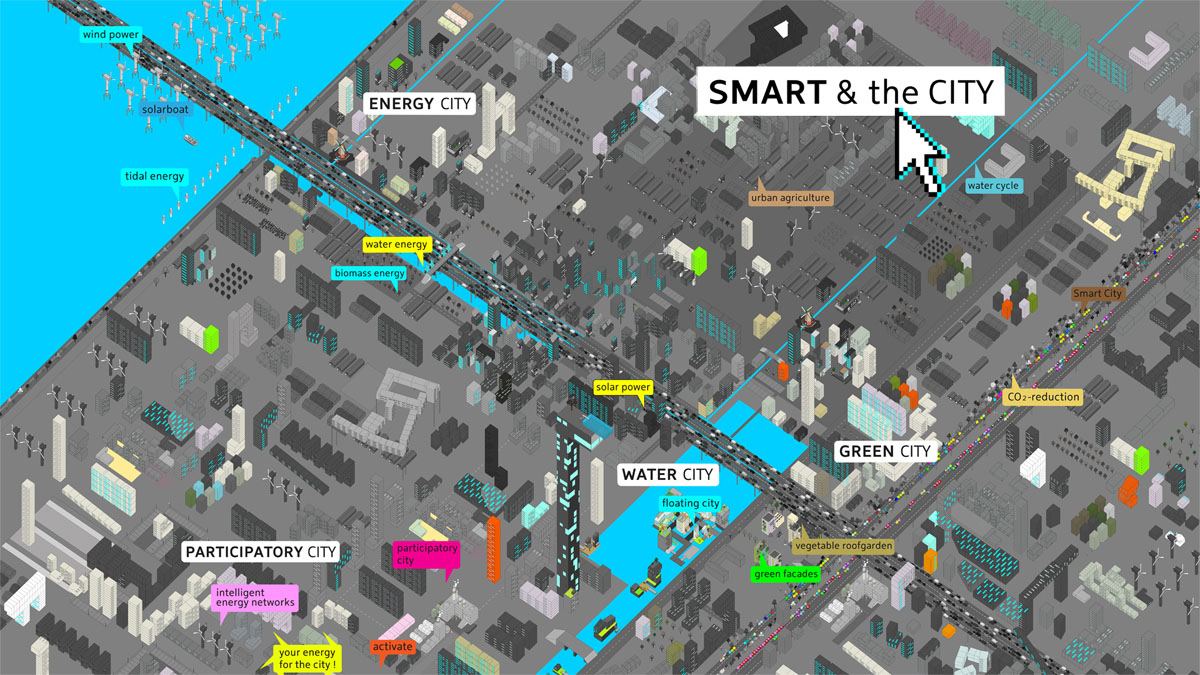City Making Lab facilitates a transdisciplinary dialogue investigating ongoing developments at the intersection of digitalization and the city and is developed by Humboldt Institute for Internet and Society and Hybrid Space Lab.
Research, Lectures & Workshops City Making Lab @ Humboldt Institute for Internet and Society, Berlin, 2019~2020
City Making Lab is a series of programs focusing on digitalization and the city. City Making Lab is a co-operation between Hybrid Space Lab and Alexander von Humboldt Institute for Internet and Society (HIIG).
City Making Lab investigates ongoing developments at the intersection of cities and digital technology, engaging with urban mobility and public space, new patterns of space utilization for living and working, circular city, climate adaptation and healthy cities.
The digitalization of large parts of city infrastructure raises new questions of privacy, data governance and (digital) design that have historically not been part of city planning, architecture and local governance. City Making Lab aims to bridge the gap between data and privacy experts and urbanists, architects, city makers, civil society and governance.
Cities around the world who want to present themselves as innovative and sustainable are in the process of introducing a multitude of new technologies. These should make city life more efficient, comfortable, sustainable and, in some cases, even more democratic. This development, known as the “Smart City”, uses sensors that collect data on traffic conditions, air quality, waste management, energy consumption, etc. – with the goal of giving administrations the ability to make informed decisions and urban processes Optimize infrastructure. At the same time, digital platforms are transforming the city (usage). In addition, many cities are working together with private companies in an effort to become a “smart city,” hoping to offset the lack of internal expertise with external expertise.
The leitmotif of City Making Lab – “digital macht stadt” – captures the potential of digital technology to power city development and re-define power in the city.
In the centennial year with its widespread celebrations of the Bauhaus, the icon of industrial-era, City Making Lab addresses “City Making in the Digital Age”.
The kick-off event of the City Making Lab series will take place on February 21st 2019 with a keynote lecture by Marleen Stikker, co-founder of WAAG Society and focus on “City Making in the Digital Age“.
The City Making Lab sessions are introduced by the curators of the program Christian Grauvogel (Humboldt Institute for Internet and Society) and Prof. Elizabeth Sikiaridi and Prof. Frans Vogelaar (Hybrid Space Lab).
Benjamin Knödler, Journalist, der Freitag
Beate Albert, Head Berlin Partner Smart City Unit
Hille Bekic, Member of the Board of the Architektenkammer Berlin
Ryotaro Bordini Chikushi, CEO InfraLab Berlin
Victoria Dykes, Ideation & Prototyping Lab, Technology Foundation Berlin
Dr. Isabella Hermann, Political Scientist, Berlin-Brandenburg Academy of Sciences and Humanities
Prof. Melanie Humann, Architect, TU Dresden
Ingo Kollosche, IZT – Institute for Future Studies and Technology Assessment
Dr. Jens Libbe, Head of Department for Infrastructure, Economy and Finance, German Institute of Urban Affairs
Alexander Mankowsky, Futurist, Daimler AG
Elke Plate, Urban Planer, Senate Department for Urban Development and Housing, Project Leader Berlin 2030
Heiko Rintelen, FixMyBerlin
Bela Seeger, Open Knowledge Foundation Germany
Marleen Stikker, co-Founder of WAAG Society Amsterdam
Rosa Thoneick, CityScienceLab, HafenCity University Hamburg
* How can citizens actively manage their personal data in a digital city?
* What responsibilities does a smart city have towards its residents?
* For whom is the digital city of the future planned?
* Who are the City Makers of the digital age, what are their approaches and their potential, and how can they interact?
City Making in the Digital Age @ Humboldt Institute for Internet and Society, Berlin, 19.00-20.30, 21 February 2019
Climate City @ Humboldt Institute for Internet and Society, Berlin, 19.00-20.30, 20 November 2019
City to Go @ Humboldt Institute for Internet and Society, Berlin, 19.00-20.30, 15 July 2019
Visions, Concepts and Narratives for the Networked City @ Humboldt Institute for Internet and Society, Berlin, 19.00-20.30, 20 February 2020

related PROJECTS
related NEWS